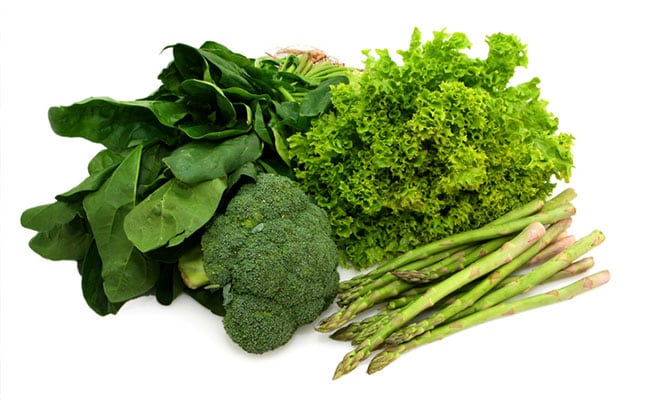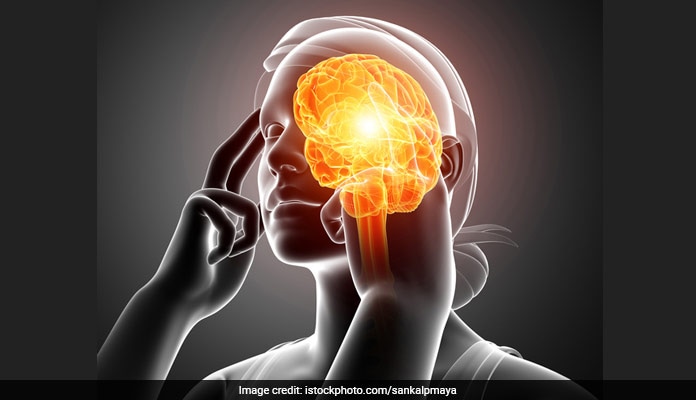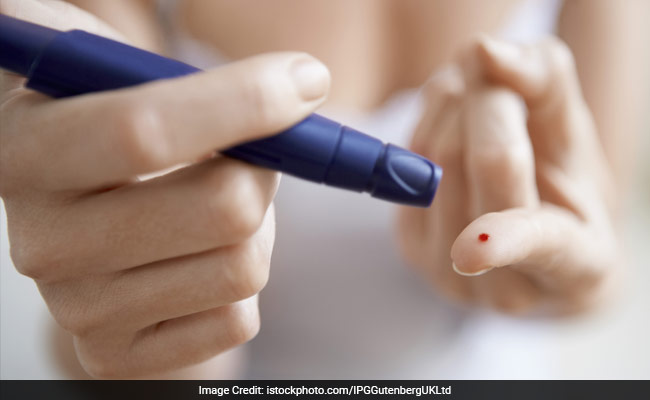Vitamin K is a fat-soluble nutrient which is essential for your overall health. Click here to know the health benefits of vitamin K.

Health benefits of vitamin K: When body runs out of vitamin K, it can go into the emergency mode
HIGHLIGHTS
- Vitamin K possesses that protein which is responsible for blood clotting
- Vitamin K is known to prevent artery calcification
- Deficiency of Vitamin K may result in gastrointestinal problems
Vitamin K is a group of fat-soluble vitamins which play an essential role in blood clotting, blood calcium regulation, and bone metabolism. It plays an important role in maintaining good bone and heart health. This vitamin possesses that protein which is responsible for blood clotting. Keep in mind that your vitamin K levels will greatly depend on your intestinal and gut health. Because of its relevance in keeping the bones strong and heart-healthy, vitamin K deficiency can be very dangerous. When the body runs out of a necessary level of vitamin K, it can go into the emergency mode, which again, is not good in any manner. But are you aware of the health benefits of vitamin K?
Also read: Do Not Take These 5 Vitamin Supplements!
Vitamin K is produced by healthy bacteria. Therefore, a decline in it can result in intestinal disruptions. Here's a list of foods rich in vitamin K.
- Spring onions
- Brussels sprouts
- Turnip greens
- Spinach
- Kale
- Broccoli
- Asparagus
- Cabbage
- Cucumbers
- Cauliflower
- Dandelion greens
- Strawberry
- Eggs
- Chicken liver
Vitamin K has a number of health benefits to offer. Here we enlist the top 10 health benefits of this essential nutrient. Take a look.
1. Healthy heart
Clogged arteries are one of the major causes responsible for a heart attack. Vitamin K is known to prevent artery calcification, thereby preventing heart attacks. It drives calcium out of the arteries and prevents them from accumulating plaque. Some studies show that vitamin K plays a crucial role in preventing inflammation of the cells lining the blood vessels. It maintains a healthy blood pressure and reduces the risk of a cardiac arrest.

Benefits of Vitamin K: It is good for heart health
Photo Credit: iStock
Also read: Vitamins Needed For Hair Growth And Their Sources
2. Prevents internal bleeding
Vitamin K is known to improve blood clotting. This way it prevents the risk of liver bleeding. Deficiency of this essential nutrient may result in gastrointestinal problems like Crohn's disease, obstructions, and colitis.
3. Treating menstrual pain and PMS
Vitamin K can reduce PMS symptoms and discomfort by regulating hormones. One of the reasons of painful periods is excessive bleeding. What vitamin K does is it reduces pain during periods by preventing excess bleeding. Its deficiency makes pain worse for you.

Benefits of Vitamin K: It relieves PMS symptoms
Photo Credit: iStock
4. Blood clotting
Vitamin K prevents excess blood loss after bruising. It forms blood clots which lower the risk of blood loss. The clotting process is quite complicated. It requires 12 essential proteins and minerals, one of which is vitamin K. Deficiency of this mineral might be harmful as it can slow down the healing process.
Also read: Here's All You Need To Know About Vitamin D And Its Many Health Benefits
5. Enhances brain function
Vitamin K plays an important role in enhancing brain function. Sphingolipids play an important role in the building and supporting the brain. There has been growing evidence in the past to support the fact that vitamin K keeps your brain safe against free radical damage due to oxidative stress on the brain.

Benefits of Vitamin K: It enhances brain function
Photo Credit: iStock
6. Maintaining healthy gums and teeth
A diet poor in terms of fat-soluble vitamin like vitamin K is known to have more cavities and gum related diseases. Tooth decay and gum diseases can be prevented by increasing the intake of these nutrients. It kills the bacteria which damage tooth enamel, thereby preventing tooth decay.
7. Regulating blood sugar levels
Vitamin K plays an essential role in keeping your blood sugar levels in check, thereby reducing the risk of diabetes. It is believed that vitamin K supplementation is more effective in lowering diabetes risk in men than in women.

Benefits of Vitamin K: It lowers diabetes risk
Photo Credit: iStock
8. Preventing osteoporosis
Loss of bone mineral deficiency may result in osteoporosis. Increased consumption of vitamin K can lower this risk. Consume more of green leafy vegetables, lettuce, Brussels sprouts, broccoli and spinach to prevent bone density loss. This condition takes place in people older than 50 years of age and is seen mostly in post-menopausal women.
Disclaimer: This content including advice provides generic information only. It is in no way a substitute for qualified medical opinion. Always consult a specialist or your own doctor for more information. NDTV does not claim responsibility for this information.
DoctorNDTV is the one stop site for all your health needs providing the most credible health information, health news and tips with expert advice on healthy living, diet plans, informative videos etc. You can get the most relevant and accurate info you need about health problems like diabetes, cancer, pregnancy, HIV and AIDS, weight loss and many other lifestyle diseases. We have a panel of over 350 experts who help us develop content by giving their valuable inputs and bringing to us the latest in the world of healthcare.














